Special Report: Getting into the flow of a very fishy rewilding project around Dovedale
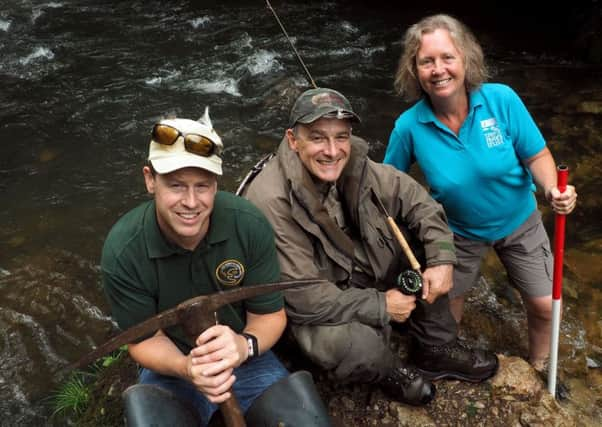

Alex Swann would probably be happier standing in a river with a fishing rod rather than a pick axe, but needs must.
“When you see a tattoo on a fish you’ve caught it’s a disappointment, because you’ve tricked a farmed fish that’s fat and stupid,” he said.
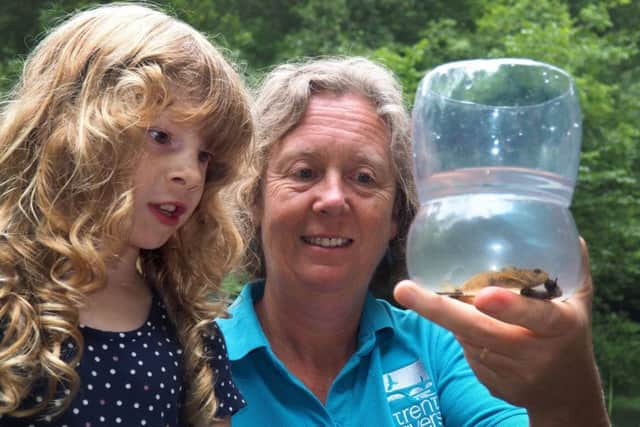

Advertisement
Hide AdAdvertisement
Hide Ad“Catching a domesticated animal that’s been released into a modified artificial environment is nothing compared to the satisfaction of deceiving a cunning wild fish,” said Tim Jacklin from the Wild Trout Trust.
Hence the pick axes. This year Alex and colleagues from the Leek and District Fly Fishing Association set about two weirs in Dovedale in the early stages of a project to return many parts of the river to its natural, free running state as it was before wealthy Victorians came up with the idea of replacing the depleted wild trout with farmed fish. Since 1880, 177 weirs have been installed on the Dove alone, to recreate the ‘stew ponds’ favoured by trout farmers.
Izaak Walton, the famous ‘Compleat Angler’ writer, would not recognise many stretches of the Peak District rivers he popularised in his books of the seventeenth century, where, said Tim Jacklin, the waters now flow “like a canal.”
The ‘Letting the Dove Flow’ project is checking all the River Dove’s weirs and from now on aims to select at least six a year to remove, along with naturalising stretches of the river by adding trees and branches into the flow and reducing some built features on the bank.
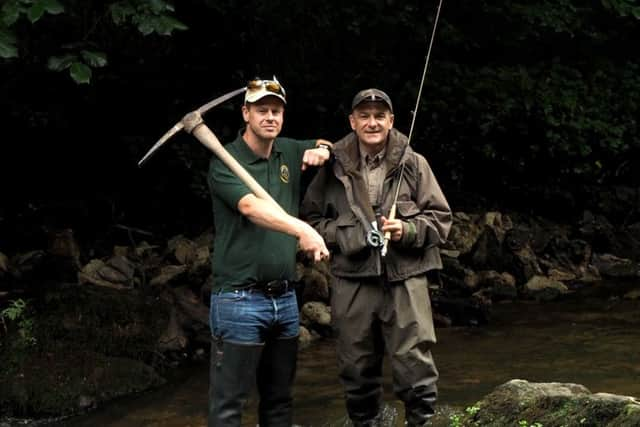

Advertisement
Hide AdAdvertisement
Hide AdSimilar rewilding projects on the River Wye around Bakewell have improved river quality on another famous Derbyshire fishing river, said National Trust ecologist Chris Wood, who described ‘impounded’ water above many Peak District weirs as like a “wet desert, with no food and no variety for wildlife.”
Many fly fishing clubs now believe that improving rivers (and stopping or reducing the farmed fish they add) makes for better fishing. Naturalising rivers is good for birds, fish, insects and visitors who’ll be more likely to see dippers (and water voles on the Wye) said Tim Jacklin. “It’s kind of returning the river to how it was before the Victorians interfered with it.”
The partnership project on the Dove includes fishing clubs, farmers, Natural England, the National Trust (who own Dovedale), the Peak District National Park and the Trent Rivers Trust.
The weir builders of 100 years ago didn’t realise they’d be reducing the wildlife (and wild fish) for future generations. “To me, the weirs are like lots of kids going a bit mad when they try to dam a river,” said Julie Wozniczka of the Trent Rivers Trust.
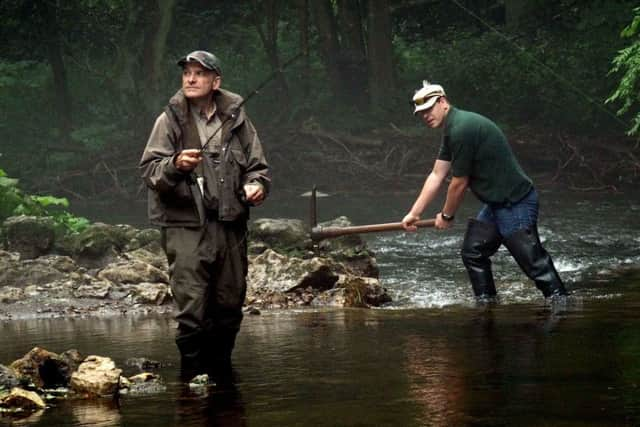

Advertisement
Hide AdAdvertisement
Hide Ad“But the old pictures show that a lot of the weirs were actually built on existing waterfalls, so what we’re doing now is restoring those waterfalls.”
A natural trout river has many habitats, with variations in flow and depth caused naturally by rocks and trees and branches, with clearer water and a gravelly river bed where insect food for fish and birds can thrive.
Julie Wozniczka demonstrated the difference by listening where a weir had been removed. “Here you can hear the river gurgling and babbling and whispering like an orchestra, whereas a weir is like a rousing chorus, with the same monotonous sound.”
The project on the Dove will retain historical weirs, and other Peak District rivers like the Derwent feature many old industrial weirs which cannot be removed, although adding trees and wood and fish passes can still help improve the rivers for wildlife.
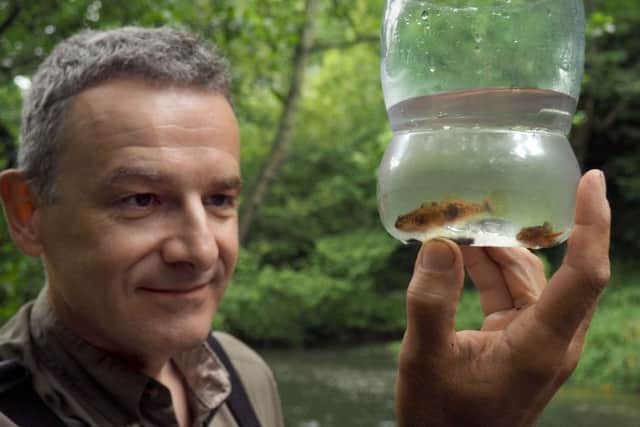

Advertisement
Hide AdAdvertisement
Hide Ad“Dovedale is a National Nature Reserve, and the Dove is one of the best limestone rivers in the country in terms of wildlife”, said Luke Barley, National Trust lead ranger for Dovedale.
“But many species haven’t been doing as well as they should have been, and we need to improve it.”
“The idea the old weir builders had of changing a river to make it easier to catch fish just seems wrong to me,” said Tim Jacklin. “If they were struggling to score goals in the Premier League, they wouldn’t make the goals bigger.”